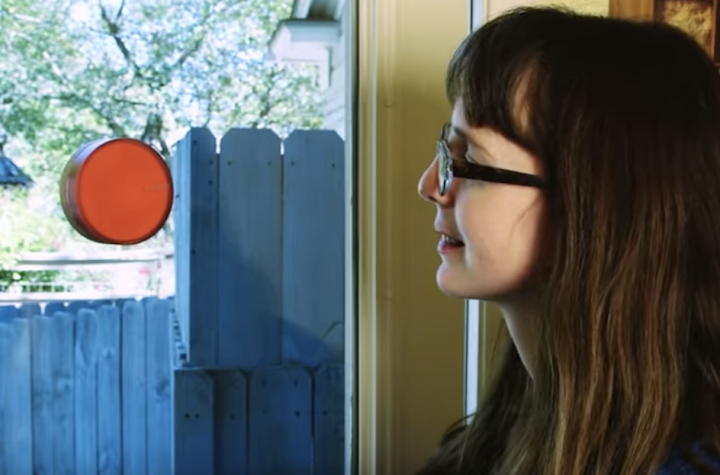
Yesterday, the world got really upset about Peeple, the “Yelp for people” — an incredibly judgmental and potentially dangerous app that allows you to review anyone and everyone in the world (so long as you have their phone number). But two days ago, Peeple, the “caller ID for your front door,” won a prestigious tech competition in the U.K. In the shortest-lived victory ever, Peeple (the product) soon had its parade epically rained on by the less-than-complimentary media storm surrounding the Peeple app, and now, the Peeple product is at the receiving end of some very confused (and very nasty) messages.
@peephome Just close up shop. Everyone pre-hates you except the psycho ex-bf stalker demographic
— Greg Stolze (@GregStolze) October 1, 2015
Let’s explain the difference here: Peeple, the product, is a pretty ingenious little invention. Consisting of a smart camera that sends notifications to your door, the Internet-connected peephole allows its users to see who’s at their door, regardless of whether they’re at home. Whenever someone rings the doorbell, Peeple sends a mobile alert to the resident, keeping owners and renters forever aware of who’s at the front door.
Then, there’s Peeple, the app. If you go on a bad date, you can now give both the restaurant and your failed paramour a one-star review thanks to this human-being-rating system. Once you’re in the Peeple database, there’s no getting off of it, so be careful who you offend.
Naturally, the app hasn’t gotten the warmest of responses (because no one wants to relive high school), but unfortunately, some people’s wrath has been misdirected at the wrong Peeple. Chris Chuter, the CEO of the peephole-app Peeple, told Wired, “We want to be something that people wanted. Not something people … hated. This was supposed to be our moment in the sun. We just won a major competition … then this happened yesterday and completely swallowed up our press. Our branding is in tatters.”
Unfortunately, the issue at hand is that the two companies are actually registered in different countries — the Mean Girls app in Canada, the product in the U.S. There’s nothing that either one can really do about the other at this point, though the likelihood of the Peeple app ever actually launching at this point seems … questionable.
At the end of the day, Chuter says, “We are not changing our name and we’re not going anywhere.” So good branding or not, at least one Peeple is going to weather the storm.
Editors' Recommendations
- The first HMD Android phones are here, and they’re super cheap
- There’s a big problem with the iPhone’s Photos app
- This is our first look at next-gen graphics cards, and they’re absolutely massive
- Nvidia may launch 3 new GPUs, and they’re bad news for AMD
- I’m sick of big, ugly phone cameras — and they’re only getting worse
